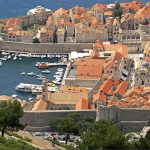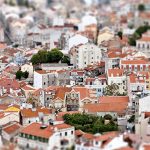ACL REAL ESTATE MEETUP VI -The future of branded residences
Members of the American Club of Lisbon (ACL) joined investors and business representatives to learn about the Martinhal Residences from Martinhal Family Hotels and Resorts CEO and Co-founder Chitra Stern. The talk was moderated by Bruce Hawker (CEO Open Media), with advice from João Cunha Vaz, Senior Partner at EDGE International Lawyers.
Text: Chris Graeme
Why did you choose a branded residencies concept at Martinhal Residences?
The location Parque das Nações is a fantastic urban regeneration, mixed-use urban development project that came out of the World Expo 1998. You have people living and working there. There are hotels to cater for all the needs of meetings, incentives, conferences and corporate stays. What we found at the time was that this concept of serviced apartments was difficult to find in Lisbon.
You have Airbnb which is quite different, but to have branded residences with a hotel brand and with all the services that a hotel offers, and that are apartments, is hard to find for stays that are longer than just a few days.
We have been doing touristic villages and apartments for several years. Martinhal Sagres itself has 220 keys, of which around 200 are houses, townhouses and villas. Our resort concept that we built from scratch is a tourists village with individual houses. Martinhal Chiado has 37 apartments in a hotel, but this is the fist branded residences that we’ve done. We have smaller rooms on specific hotel floors, and around 80 of the apartments in the building act as hotel units since they are smaller. The difference is that they have all the facilities of an apartment. The upper floors are designed to have larger apartments for people to live in.
The second reason is that each one of our hotels and resorts is quite different; it was a question of timing as well, as we had already seen the growth of the number of foreigners settling in Lisbon thanks to the Golden Visa and D7, and to find long-term rental apartments was getting difficult. With the Martinhal Residences, we were addressing the needs in Lisbon for long-term rentals and serviced apartments, as well as a financing concept where individuals buy a freehold apartment and they lease it back to us as the operator.
Third, we also wanted to create a landmark building with both amazing architecture, with fabulous views over the Tagus estuary, and functionality.
How has demand changed and what does the buyer today look for compared to a few years back?
Buying tastes have changed a lot. At Martinhal Sagres we were selling holiday homes. The kind of investor in Portugal has changed significantly, with new nationalities coming to Portugal who are exposed to New York, Miami, London and Singapore. When I first came here 22 years ago, things looked very different. These clients are used to serviced residences, and this was a response as well. We knew our concept would be understood and appreciated. Our clients want hassle-free investment and a place where they can spend between 6-12 months of the year, lock-and-leave, and have peace of mind that we are servicing their property.
How important was it to incorporate rental with long and short-term lets?
It is quite important. This is a city and long-term rental doesn’t tend to happen in holiday destinations like Sagres where we have Martinhal Sagres. People who move here often do so in the summer and need a landing pad were they can have somewhere to live and send their kids to school.
They might stay with us for one year while looking for another property and need a one-year D7 visa-compliant rental contract. People can buy a property at Martinhal Residences and get a residents permit. They may not even need the Golden Visa or D7. The Golden Visa was fast-track. It meant investors didn’t have to move to Portugal to get the residents permit. We have sold quite a few properties to Golden Visa investors. They are not moving yet, but in our case many come and stay in the property for two weeks a year. It’s been a good investment for them and good for us. The 80 apartments on the first four floors are primarily sold to the Portuguese looking for a return, or to Golden Visa investors.
What challenges have you faced in creating the Martinhal Residences in an urban environment?
It’s presented more benefits than challenges. The Parque das Nações district is a very special district as an example of an urban regeneration project that people come to visit. Lisbon is the perfect 15-minute city, so within a 15-minute walking radius you have everything on your doorstep. Dentists, doctors, a private hospital (CUF Descobertas), Vasco da Gama shopping mall, restaurants, cafés, shops, and lovely riverside walks and parks. As for the challenges, building a vertical structure in the city we had to put in a retaining wall and dig down two floors for the basement. Everything we had to do in terms of foundations was very expensive. The other challenge is to create a green field on the façade with olive trees to make it a green building.
To what extent do you see Martinhal Residences as being a competitive product to hotels?
When I was at Business School I learnt an important term – coopetition. We really do offer a quite different product to them. There are lots of iconic brands nearby, but our product is quite different since every apartment has top-of-the-range household appliances and a kitchen. It is a different product more suitable for long-term stays. We have focused on the luxury family market for years, and we expect a significant percentage of business will come from the family segment who need these different comforts and amenities – our kids’ club Raposas is an example.
The Martinhal Family Hotels and Resorts is a Portuguese collection of hotels and residences in Lisbon and the Algarve. They are: Martinhal Sagres, Martinhal Chiado, Martinhal Quinta do Lago and Martinhal Residences.
Photo: L-R: ACL President Patrick Siegler-Lathrop, João Cunha Vaz, Senior Partner at EDGE International Lawyers, Chitra Stern, CEO and Bruce Hawker, CEO Open Media.










